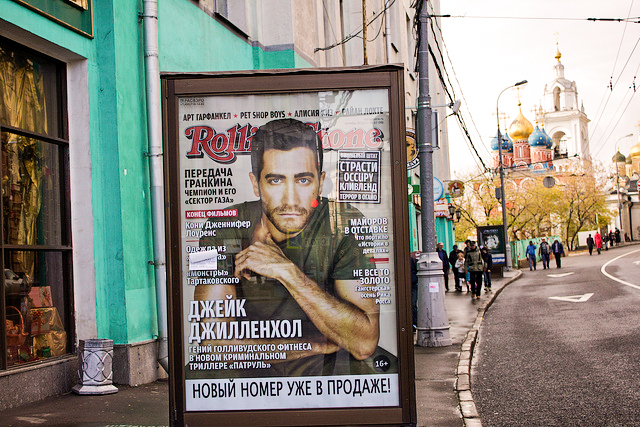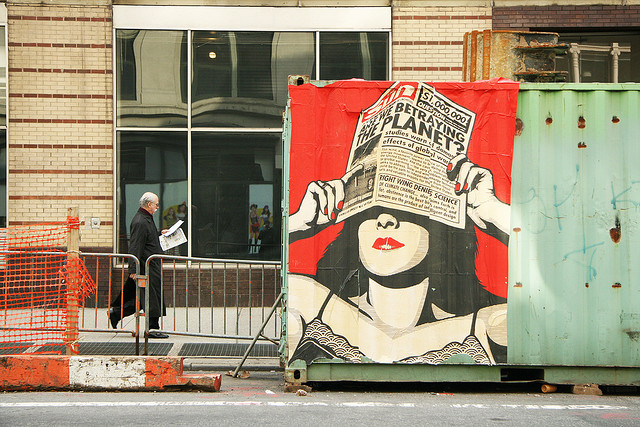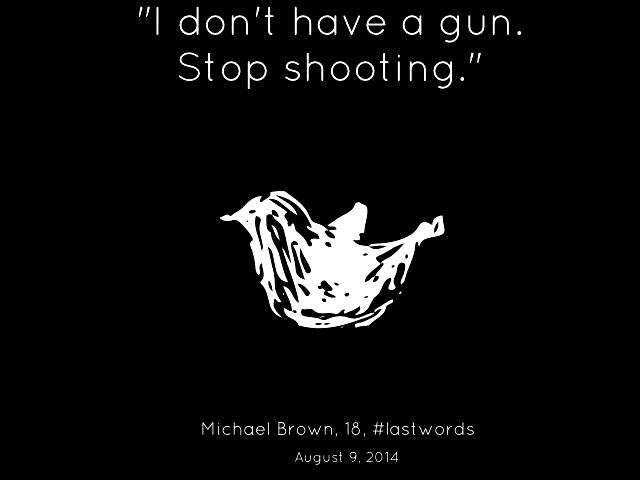Between 1976 and 1979, the British punk scene produced some very good albums (Never Mind the Bollocks; London Calling; Damned, Damned, Damned) and a couple of real brilliancies (The Pop Group’s Y, Gang of Four’s Entertainment.) But for sheer transgression, there is nothing to top Cut, the first album by The Slits. (More…)
Reads
Rolling Stone may very well lose some of the honor it’s earned over the decades. From Annie Leibovitz’s photography to Hunter S. Thompson’s gonzo journalism to Michael Hastings’s story that brought down a top US general in Afghanistan, the publication has commanded a presence not just in the world of magazines, but in Americana at large. (More…)
There is a section in David Kilcullen’s excellent counter-insurgency book The Accidental Guerrilla where the author describes a rising insurgency in terms of an antibody model. The antibodies being those resisting the occupation, theorised as a foreign object. (More…)
“No European country has been more interested than France in the nature of memory and history, how it is understood, recorded, perceived, written and transmitted.” So writes Caroline Morehead in her new book, Village of Secrets: Defying the Nazis in Vichy France, and with some justice. (More…)
Few issues strike so close to home as human-driven climate change. Although one form or another of this explanation has been acknowledged by the vast majority of scientists, the general public has proved less ready to accept that this is the case. A recent Pew study revealed that 67% of Americans thought that there was “solid evidence that the Earth is warming,” with only 44% conceding that human beings are causing it. (More…)
If you’re been paying attention to ISIS coverage, you’ve probably noticed the meme about women who are fighting for the Peshmerga. The topic has gone viral, and has been repeatedly covered by outlets ranging from the The Telegraph and Foreign Policy to the Times of Oman and New York Post. The gender politics are troubling. (More…)
Few pieces of journalism have aroused the ire than Hannah Arendt’s Eichmann in Jerusalem did when it was published in 1963. Arendt, who covered the trial for The New Yorker, seemed to have her own agenda. At times her tone bordered on flippancy, particularly when she accused the Judenräte, the councils that ran the ghettoes of Poland and Russia, of collaboration. (More…)
I’ve never been to a protest march that advertised in the New York City subway. That spent $220,000 on posters inviting Wall Street bankers to join a march to save the planet, according to one source. That claims you can change world history in an afternoon after walking the dog and eating brunch. (More…)
There’s something of a cottage industry in the US, devoted to tying contemporary politics to their intellectual forebears. In some cases, it’s a matter of pure character assassination, as in the assertions from the far right that Barack Obama is some sort of socialist. From the leftward side of the spectrum come claims that this or that politician is a devotee of the thought of that great seducer of the adolescent male mind, Ayn Rand. (More…)
Make no mistake. Ferguson is the War on Terror exploding in a relatively unspectacular American town. The crackdown that immediately followed protests over Michael Brown’s shooting recalls, for many immigrant Muslims, the sort of violent excesses present in countries like Iraq, Iran, and Pakistan. (More…)
European intellectuals can be divided between those who embrace history, and those fleeing from it. Marx and his intellectual progeny (up to Louis Althusser) represent the first sort. Men make their own history, as Marx once averred, but they do not do so under conditions of their own choosing. For structuralists and post-structuralists, by contrast, the role of history is, at best, secondary for understanding human life. (More…)
Larry Gordon assured me that it was all a big misunderstanding. Sure, his Long Island newspaper, the 5 Towns Jewish Times, printed an article by his son and staffer, Yochanan, titled “When Genocide Is Permissible.” In considering how Israel can protect itself from rocket fire the author ponders the unthinkable, and while the paper officially apologized, Gordon insisted that the outraged public got it wrong. (More…)











